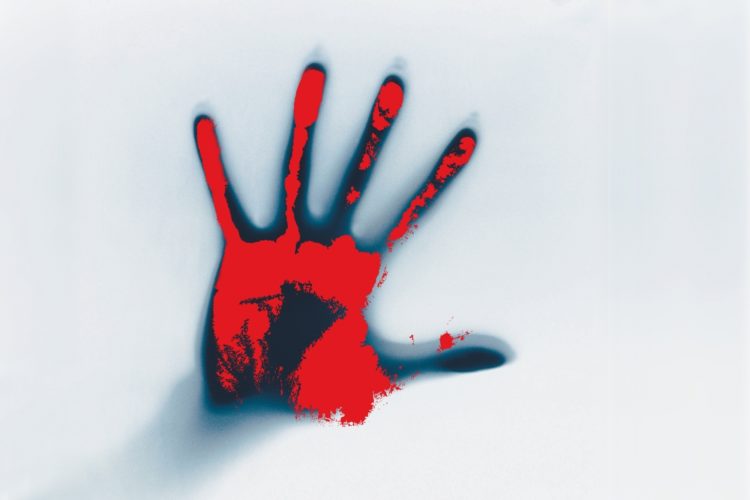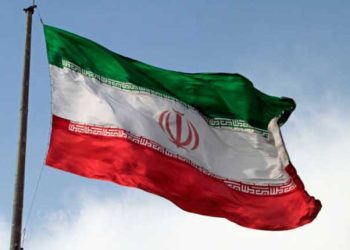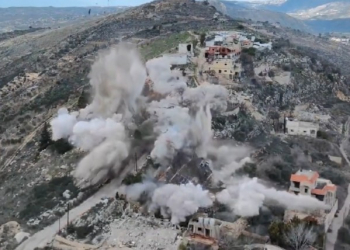New Delhi: Christian communities across the world are aghast at the killing of a Christian priest in Peshawar, Pakistan.
Two attackers on a motorcycle opened fire on the car as the clerics drove home from church, killing Pastor William Siraj and wounding another.
The gruesome killing is yet another incident of atrocities faced by the minority communities in Pakistan, where Christians have suffered brutalities like abduction, killings and have been convicted of blasphemy, facing death sentence.
The killing points to the desperate conditions in which Christians are surviving in Pakistan under constant fear and insecurity, without getting justice and without any respite from government institutions or agencies.
The killers are yet to be identified though local media reports have quoted a Peshawar police officer calling it a terrorist attack.
Pakistan People’s Party Senator Sherry Rehman has also condemned the attack, saying: “Terrorism that targets anyone, especially for their faith, is heinous and must be fought against with the full force of clear, concerted policy and state power. No compromise, no equivocation.”
Azad Marshall, the most senior bishop in the Church of Pakistan, condemned the attack vociferously. He tweeted, “We demand justice and protection of Christians from the Government of Pakistan.”
Bishop Azad said both the victims were clergy of the Diocese of Peshawar in the Church of Pakistan, which is a union of protestant churches, including the Methodists and the Anglicans.
The Christian community in Pakistan has been voicing their fears and concerns on social media with Christians from across the world joining them in condemnation of the killing.
The ghastly killing reminded the Christian community in Pakistan of the twin suicide bombings outside the All Saints Church in 2013 in Peshawar which killed 127 people and injured more than 250. It was the deadliest attack on the Christian minority in the history of Pakistan.
The Tehrik-i-Taliban Pakistan-linked Islamist group Jundallah had claimed responsibility for the dastardly terror attack in 2013. They said that the attack on Christians and non-Muslims will continue because they are the enemies of Islam.
After the latest killing of Pastor William Siraj, there are fears among minority Christians in Pakistan that Tehrik-i-Taliban Pakistan or Pakistani Taliban would target them again. Christians have been targeted by the militants in recent years and violence has increased since the Pakistani Taliban ended a ceasefire with the Pakistan government recently.
Pakistan had the second-highest number of Christians killed for their faith, behind Nigeria, in Open Doors’ 2022 World Watch report with 620 slain between October 1, 2020 and September 30, 2021. The nation also had the fourth-highest number of churches attacked or closed, with 183, and ranked eighth on the list of the 50 countries where it is most difficult to be a Christian.
Christian communities in Pakistan have been lamenting ‘the dying future for Christians in Pakistan’ after every attack on the community. Hundreds of Christians have also been persecuted by Islamic zealots over allegations of blasphemy against Islam, a crime under Pakistani law.
The Pakistan Penal Code, the main criminal code of Pakistan, penalises blasphemy against any recognised religion, providing penalties ranging from a fine to death.
According to human rights groups, blasphemy laws in Pakistan have been exploited not only for persecuting minorities but also for settling personal rivalries. A number of people from minority communities including Christian community are languishing in jails or have been murdered in the name of blasphemy.
Arrests and death sentences issued for blasphemy laws in Pakistan go back to the late 1980s and early 90s. A case that was reported worldwide in 2010 was of a Pakistani Christian woman, Asia Bibi, who was convicted of blasphemy by a Pakistani court and was sentenced to death by hanging. The case sparked international reactions, and in 2018, due to international advocacy, Bibi was acquitted of the blasphemy charges after spending eight years on death row.
Rimsha Masih, another Pakistani Christian girl from Islamabad, was also arrested by the Pakistani police on blasphemy charges in August 2012 when she was 14 years old. The alleged charges included desecrating pages of the Quran – a crime punishable by death under Pakistan’s blasphemy law.
She was eventually acquitted of all charges and in mid-2013 after months of hiding to escape death threats, Rimsha and her family were able to escape to Canada.
In another gruesome case in 2010, two Christian brothers, Pastor Rashid Emmanuel and Sajid, were accused of blasphemy in Faisalabad. They were shot and killed while being escorted by the police from a district court. Both brothers had denied the charge of blasphemy.
Christian leaders in Pakistan point out that there have been death sentences under the blasphemy law. In September 2020, a court in Lahore, Pakistan, sentenced a Christian man, Asif Pervaiz, to death for sending a ‘blasphemous’ message to his former supervisor at work in 2013. The defendant said that his supervisor had tried to convert him to Islam, which he refused to do; however, the court rejected his testimony.
Christians and other non-Muslims often face intimidation and persecution in Pakistan, with attacks sometimes also targeting members of minority Muslim faiths such as Ahmaddiyas and Shiites.
The Christian community has been protesting against blasphemy law, but to no avail. This has caused much frustration among the minorities as people from Christian community are targeted and often on false charges.
In May, 1998 a Catholic bishop had committed suicide outside a Pakistani court in protest at a death sentence ordered against a Christian found guilty of blasphemy. Bishop John Joseph had addressed mass prayers in the city of Sahiwal, in Punjab province for Ayub Masih, who was convicted for uttering insulting remarks against prophet Muhammed.
After his speech, Bishop Joseph went to see the judge, who had pronounced the judgement against Ayub Masih and shot himself outside the court. His suicide was seen as a desperate form of protest. Christians gathered at the court premises to protest against his suicide and demanded that blasphemy law must be repealed.
The former chairperson of the Human Rights Commission of Pakistan, late Asma Jehangir, had reacted to the incident saying it ‘communicates the desperation’ of the non-Muslim minorities which find it difficult to get justice and an atmosphere of ‘terror’ had been created in Pakistan by religious extremists.
(IANS)



















